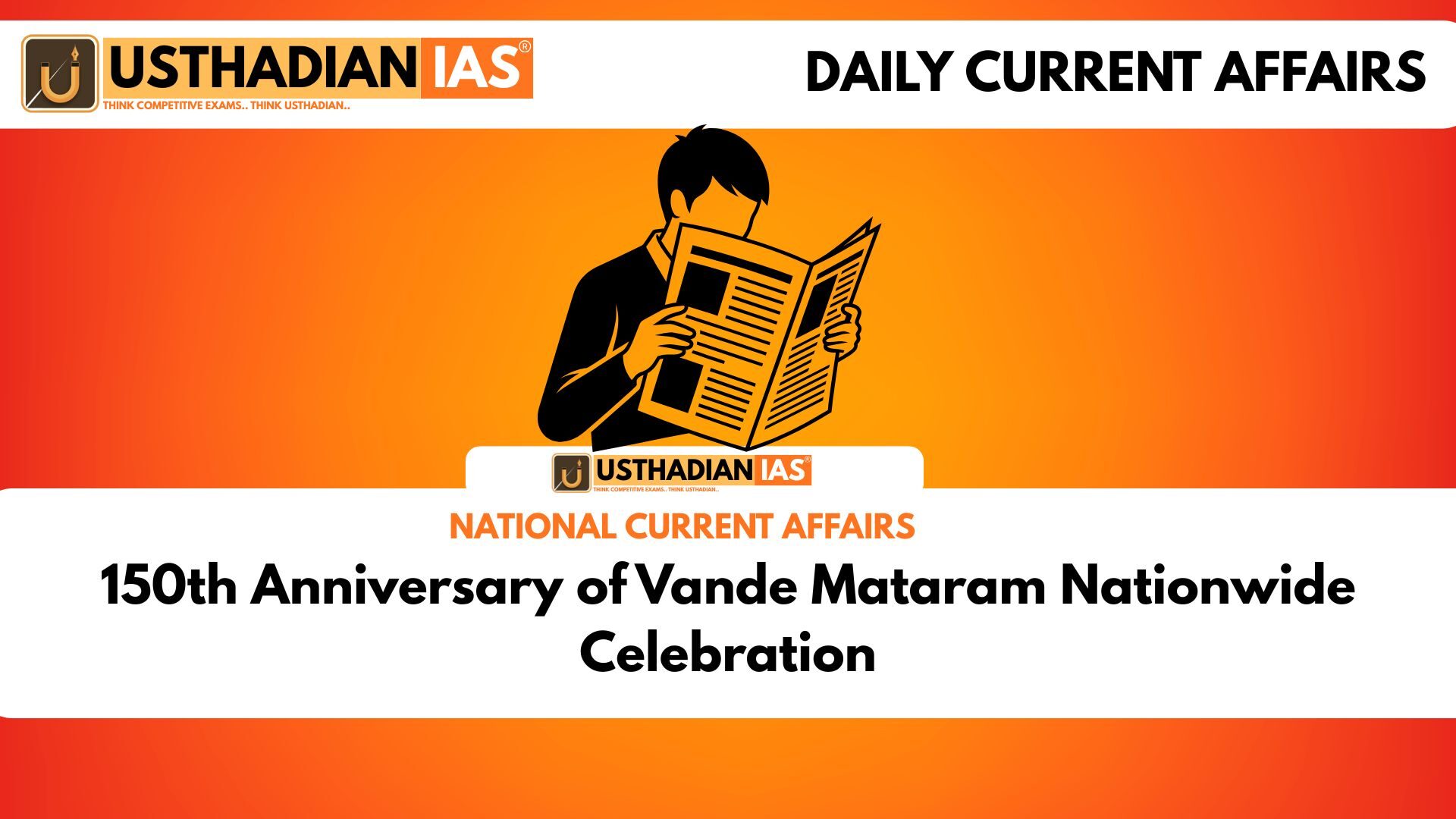Historical origins
150th Anniversary of Vande Mataram Nationwide Celebration: “Vande Mataram” was composed in Sanskrit by Bankim Chandra Chatterjee and first appeared in the novel Anandamath in 1882. Its verses celebrated the motherland in poetic terms, becoming a central cultural symbol during colonial resistance.
Static GK fact: Bankim Chandra Chatterjee was also the author of the historical novel Durgeshnandini in 1865, considered the first major Bengali romance novel.
Rise as a national symbol
The song gained prominence in 1896 when Rabindranath Tagore rendered it at the Indian National Congress session. It soon became a rallying cry for the freedom movement, inspiring protest marches, revolutionary literature, and nationalist slogans.
Static GK fact: The Indian National Congress was founded in 1885 at Gokuldas Tejpal Sanskrit College, Bombay.
Constitutional and legal context
The Constituent Assembly accorded “Vande Mataram” the position of national song, distinct from the national anthem Jana Gana Mana. While both hold equal symbolic weight, only the anthem is mandated for respect under Article 51A(a) of the Constitution. This distinction was created to maintain cultural harmony in a diverse nation.
Cultural significance
During the freedom struggle, the song was a unifying chant among revolutionaries. Its verses invoked strong imagery of the motherland, transcending linguistic and regional divides. However, only the first two stanzas are publicly recited, since later verses carry religious references that have been debated in a plural society.
Static GK Tip: The first two stanzas of “Vande Mataram” describe the motherland as adorned with rivers, fields, and prosperity, focusing on universal imagery.
Regional perspectives
In states like Assam, debates arose over adopting “Vande Mataram” as the sole anthem. Some regions continue to uphold alternative local songs as state anthems, balancing regional identity with national sentiment. This selective adoption reflects India’s federal diversity.
Nationwide 150th year celebrations
The Union Cabinet has approved a countrywide commemoration for the sesquicentennial of Vande Mataram. The plan includes cultural events, public recitals, academic programmes, and exhibitions across states and Union Territories. The government highlights the song’s role in inspiring the freedom struggle, reaffirming its place in national heritage.
Static Usthadian Current Affairs Table
150th Anniversary of Vande Mataram Nationwide Celebration:
| Topic | Detail |
| Composer | Bankim Chandra Chatterjee |
| First publication | Anandamath, 1882 |
| First public rendition | Rabindranath Tagore, INC session 1896 |
| Status | National song of India |
| Legal context | Respect mandated only for national anthem under Article 51A(a) |
| Role in history | Rallying cry during anti-colonial struggle |
| Cultural sensitivity | Only first two stanzas used publicly |
| 150th anniversary | Nationwide celebration approved by Union Cabinet |
| Regional responses | Debates in states like Assam on adoption |
| Importance | Symbol of unity, heritage, and freedom struggle |








